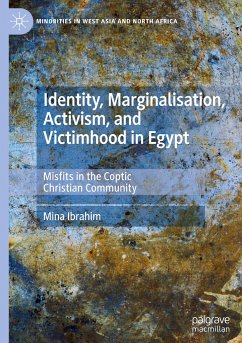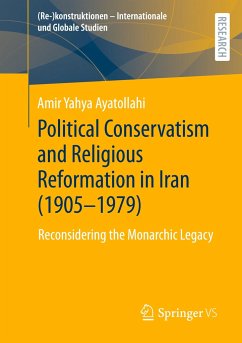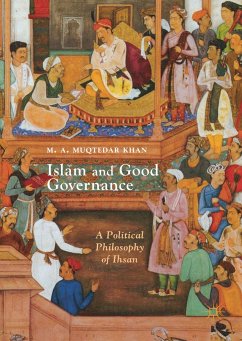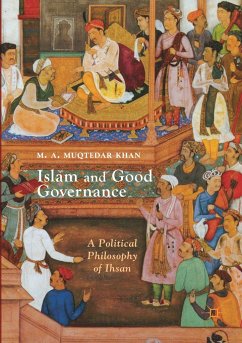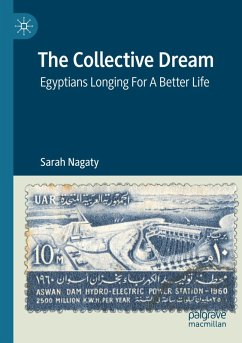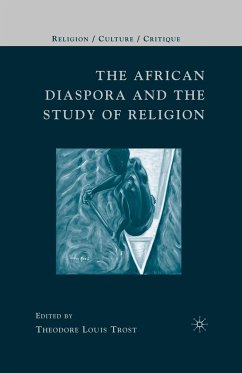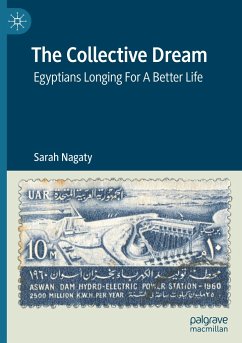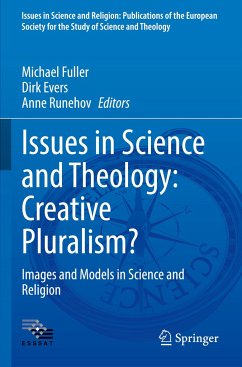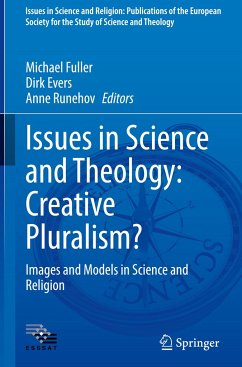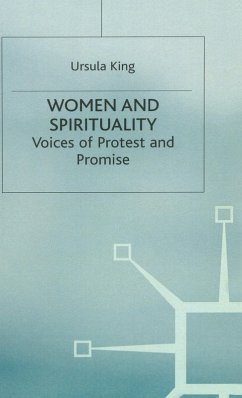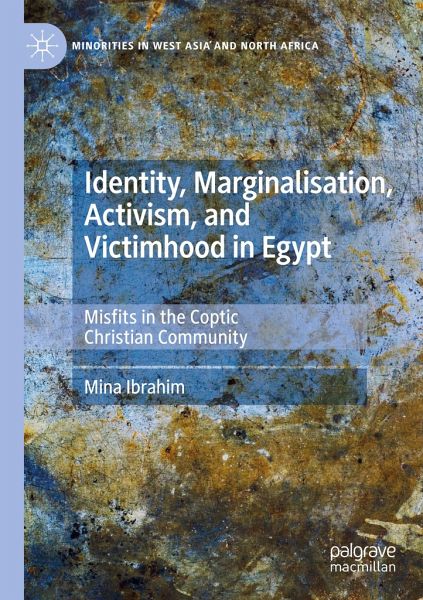
Identity, Marginalisation, Activism, and Victimhood in Egypt
Misfits in the Coptic Christian Community
Versandkostenfrei!
Versandfertig in 6-10 Tagen
106,99 €
inkl. MwSt.
Weitere Ausgaben:

PAYBACK Punkte
53 °P sammeln!
This book, first ethnographic attempt, examines negated spaces, practices, and relationships that have been intentionally or unintentionally dismissed from academic and non-academic studies, articles, reports, and policy papers that investigate and debate the experiences of Coptic Orthodox Christians in Egypt. By taking the Coptic identity and faith to bars, liquor stores, coffeehouses, weed gatherings, prisons, casinos, night clubs, brothels, dating applications, and porn sites, this book argues that airing out this "dirty laundry" points to the limits of victimhood and activist narratives th...
This book, first ethnographic attempt, examines negated spaces, practices, and relationships that have been intentionally or unintentionally dismissed from academic and non-academic studies, articles, reports, and policy papers that investigate and debate the experiences of Coptic Orthodox Christians in Egypt. By taking the Coptic identity and faith to bars, liquor stores, coffeehouses, weed gatherings, prisons, casinos, night clubs, brothels, dating applications, and porn sites, this book argues that airing out this "dirty laundry" points to the limits of victimhood and activist narratives that shape the representation of Coptic grievances and interests on both national and international levels. By introducing misfits who exist in the shadows of the well-studied Coptic rituals, traditions, miracles, saints' apparitions, and street protests, the book highlights the contradiction between the centrality of sin to the (Coptic) Christian tradition and theology, on one hand, and on the other hand the dismissal of lives that are dominantly labelled as sinful while simultaneously studying Copts as agents or victims of history and in today's Egyptian society.
Drawing on many years of fieldwork accompanied and preceded by periods the author spent as a student and a lay servant in different forms of services in the Coptic Orthodox Church, the book acknowledges the recent anthropological work that is critical of how the secular West and its academia misrepresent God and His believers in the Middle East. However, the fact that this book extends its arguments from "ethnographic confessions" collected from who deal with God on a daily basis since their childhood, it investigates the implications and consequences of inviting God to be part of an anthropological study that complicates aspects of repentance and salvation among the largest Christian minority in the Middle East.
Drawing on many years of fieldwork accompanied and preceded by periods the author spent as a student and a lay servant in different forms of services in the Coptic Orthodox Church, the book acknowledges the recent anthropological work that is critical of how the secular West and its academia misrepresent God and His believers in the Middle East. However, the fact that this book extends its arguments from "ethnographic confessions" collected from who deal with God on a daily basis since their childhood, it investigates the implications and consequences of inviting God to be part of an anthropological study that complicates aspects of repentance and salvation among the largest Christian minority in the Middle East.





